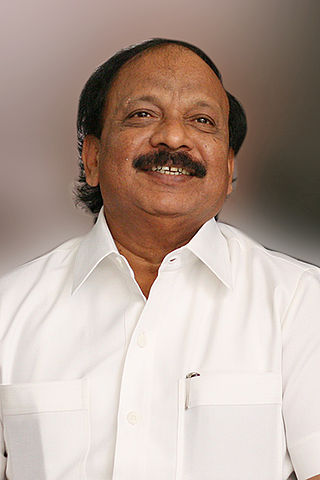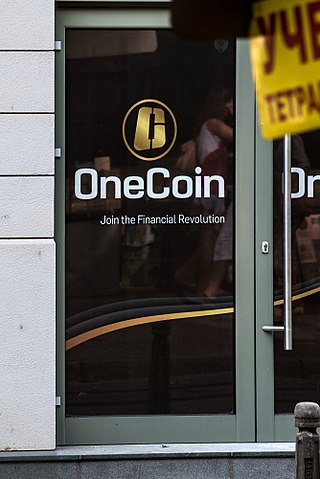Related Research Articles

The Siasat Daily is an Indian newspaper published by the Siasat Press based in the city of Hyderabad, Telangana. It operates the digital news website Siasat and is the publisher of the Siasat English Weekly magazine and the Siasat Urdu Daily newspaper whose editions are also available as electronic papers.

The Indian state of Telangana has a 31% share of software export in India. While the majority of the industry is concentrated in Hyderabad, other cities are also becoming significant IT destinations in the state. Hyderabad houses the largest campuses of tech giants like Google, Facebook, Microsoft, Amazon, and Apple outside of the US. In Hyderabad, the central region of the business happens in Financial District, HITECH City, the Madhapur suburb, Kokapet SEZ (Neopolis) and Salarpuria Sattva Knowledge City. As of 2023, Hyderabad has 9,05,715 employees in the IT/ITES sector, working in more than 1500 companies. The number of startups in Telangana had increased from 400 in 2016 to 2,000 in 2022. Hyderabad added two companies in unicorn startup list in first two months of 2022.

Ryan International Group of Institutions is a group of private educational institutions in India and other countries. The group was founded in 1976 by Augustine Francis Pinto. The group started its first school in Mumbai in 1976 and currently has more than 135 schools in India and other countries including significant locations in Maharashtra, Delhi-NCR, and Karnataka. The group collaborates with universities in the US to enhance education globally.
The information technology (I.T.) industry in India comprises information technology services and business process outsourcing. The share of the IT-BPM sector in the GDP of India is 7.4% in FY 2022. The IT and BPM industries' revenue is estimated at US$ 245 billion in FY 2023. The domestic revenue of the IT industry is estimated at $51 billion, and export revenue is estimated at $194 billion in FY 2023. The IT–BPM sector overall employs 5.4 million people as of March 2023. In December 2022, Union Minister of State for Electronics and IT Rajeev Chandrasekhar, in a written reply to a question in Rajya Sabha informed that IT units registered with state-run Software Technology Parks of India (STPI) and Special Economic Zones have exported software worth Rs 11.59 lakh crore in 2021–22.

The Purple Line is a part of the Namma Metro rail system for the city of Bengaluru, Karnataka, India. As of 2023, the line is 43.49 km (27.02 mi) long and spans 37 stations from Challaghatta in the southwest to Whitefield (Kadugodi) to the east. The Purple Line is mostly elevated, with 31 elevated stations, 5 underground stations and 1 at-grade station. The Line passes through many prime activity centers of the city including Whitefield, Krishnarajapura, MG Road, Vidhana Soudha and Majestic station, which is an interchange station between Purple and Green Lines. Phase I of the Purple Line was the first underground metro section in South India.
Yelahanka Lake is a water body near Yelahanka, a suburb of Bangalore.

Qnet Ltd, formerly known as QuestNet and GoldQuest, is a Hong Kong–based multi-level marketing (MLM) company owned by the QI Group. QNet was founded in 1998 by Vijay Eswaran and Joseph Bismark. The company's products include energy, weight management, nutrition, personal care, home care and fashion accessories on an e-commerce platform.

R. Roshan Baig is a former seven-time member of the Karnataka Legislative Assembly and Minister from South Indian state of Karnataka. He has also been vice-chairman of the Al-Ameen Educational Society. A seven-time MLA, from 1984 to 1994 he was the member of the Janata Party for the first two terms as the MLA and from 1994 to 2019 he was the member of the Indian National Congress for 5 of his MLA terms. Baig was suspended from the Indian National Congress in 2019 after he insulted top Congress leaders for the party's poor performance in the 2019 Lok Sabha polls, Roshan Baig had held former Karnataka Chief Minister Siddaramaiah's "arrogance" and Dinesh Gundu Rao's "immaturity" responsible for the "flop show". He was also blamed for praising Prime Minister Narendra Modi's initiatives for inclusive development.

The Saradha Group financial scandal was a major political scandal caused by the collapse of a Ponzi scheme run by Saradha Group, a consortium of over 200 private companies that was believed to be running collective investment schemes popularly but incorrectly referred to as chit funds in Eastern India.

Kanwar Deep Singh, also known as K. D. Singh, is an Indian businessman turned politician and Member of Parliament (MP), Rajya Sabha representing the All India Trinamool Congress, but first elected to the Indian parliament as a nominee of the Jharkhand Mukti Morcha. He is the founder and the former chairman of the Indian business group called Turbo Industries, whose name was changed and rebranded as the Alchemist Group in 2004. He was elected to lead the Indian Hockey Federation (IHF) between 2013 and 2014.

OneCoin is a fraudulent cryptocurrency scheme conducted by offshore companies OneCoin Ltd, based in Bulgaria and registered in Dubai, and OneLife Network Ltd, both founded by Ruja Ignatova in concert with Sebastian Greenwood. OneCoin is considered a Ponzi scheme due to its organisational structure of paying early investors using money obtained from newer ones. It was also a pyramid scheme due to the recruiting of investors without providing any actual product. The company maintained its own database of coins rather than using a blockchain and had no mining process which limited its ability to release and circulate coins. Many of the people central to OneCoin had been previously involved in similar schemes and business malpractice. OneCoin was described by The Times as "one of the biggest scams in history".
Anubhav Plantations was an Indian Chennai-based plantation company founded in 1992. It sold shares in teak plantations on guaranteed interests and later diversified to other schemes through four principal companies: Anubhav Agrotech, Anubhav Green Farms & Resorts, Anubhav Plantations, and Anubhav Royal Orchards Exports.
The Adarsh Credit Co-operative Society (ACCS) is a Ponzi scheme fraudulently registered under the MSCS Act w.e.f. 1986. It opened in 1999, primarily to bluff the public in Rajasthan, and all money has been siphoned off by the family members of the owners to buy properties and dupe investors of funds worth Rs. 8,000 Crore.

Aalima Nowhera Shaik is an Indian entrepreneur and politician who has been accused of serious offences under the Prevention of Money Laundering Act and under investigation by the Serious Fraud Investigation Office. She is the executive chairperson and founder of Heera Group and founder and current president of the All India Mahila Empowerment Party.

Embassy Group or Embassy Property Developments Pvt. Ltd is a privately held real estate developer based in Bengaluru, Karnataka, India established in 1993. The group is into real estate development for verticals like commercial, residential, hospitality, industrial warehouse spaces, services, retail and education. The company has developed projects in many Indian cities like Bengaluru, Chennai, Hyderabad, Pune, Coimbatore, Trivandrum etc. and two countries abroad. Embassy Group is headed by Jitu Virwani, Chairman & Managing Director of the group. Embassy also operates a real estate investment trust (REIT), called Embassy Office Parks REIT. Embassy Office Parks is the first listed REIT in India and the Asia's largest office REIT by area.

Scripbox is a Bengaluru-based digital wealth management service founded in 2012.
The NSE co-location scam relates to the market manipulation at the National Stock Exchange of India, India's leading stock exchange. Allegedly select players obtained market price information ahead of the rest of the market, enabling them to front run the rest of the market, possibly breaching the NSE's purpose of demutualisation exchange governance and its robust transparency-based mechanism. The alleged connivance of insiders by rigging NSE's algo-trading and use of co-located servers ensured substantial profits to a set of brokers. This widespread market fraud came to light when markets' regulator, the Securities and Exchange Board of India (SEBI), received the first anonymous complaint through a whistle-blower's letter in January 2015. The whistle-blower alleged that trading members were able to capitalise on advance knowledge by colluding with some exchange officials. The overall default amount through NSE's high-frequency trading (HFT) is estimated to be ₹500 billion over five years.

RMZ is a privately-owned global alternative asset owner, headquartered in Bengaluru, Karnataka ,India. The company has developed projects in multiple cities in India, including Bengaluru, Chennai, Hyderabad, Delhi NCR, Pune, and Mumbai The company has a portfolio of real assets spanning a total of 70 million square feet.
References
Cross-reference
- 1 2 3 4 5 Bharadwaj 2019.
- 1 2 3 4 5 6 7 8 Farooqui 2019.
- 1 2 3 Siddiqui 2019a.
- 1 2 3 4 5 6 Bharadwaj & Gowar 2019.
- 1 2 3 4 5 6 7 8 9 10 11 Ram 2019.
- 1 2 3 4 5 6 Gopal 2019.
- ↑ ML 2019a.
- 1 2 3 4 5 Siddiqui 2019b.
- 1 2 TOI 2019a.
- 1 2 3 Hussain 2019.
- 1 2 3 PTI 2019a.
- 1 2 Karthik 2019.
- ↑ Siraj 2019.
- ↑ NIE 2019a.
- 1 2 3 4 5 NIE 2019b.
- ↑ Hussain 2018.
- 1 2 3 Kurian 2019.
- 1 2 Akshatha 2019.
- 1 2 TOI 2019b.
- ↑ Shankar 2019.
- 1 2 3 Kalkod 2019.
- ↑ "Mansoor Khan: IMA founder Mansoor Khan arrested from Delhi airport". The Economic Times. Retrieved 17 March 2021.
- ↑ "Mansoor Khan remanded in judicial custody". The Hindu. 2 August 2019. ISSN 0971-751X . Retrieved 17 March 2021.
- 1 2 BM 2019a.
- ↑ TNM 2019a.
- ↑ DC 2019a.
- 1 2 3 4 IE 2019a.
- 1 2 3 Rasheedali 2019a.
- 1 2 Belagere 2019a.
- 1 2 3 4 5 6 Kulkarni 2019.
- 1 2 Reddy 2019b.
- 1 2 D'Souza 2019.
- 1 2 3 Reddy 2019a.
- 1 2 DC 2019b.
- 1 2 Belagere 2019b.
- ↑ PNS 2019a.
- 1 2 3 Rajashekara 2019.
- ↑ Sameer 2019.
- ↑ Rasheedali 2019b.
Sources
- Akshatha, M. (29 June 2019). "Banking on faith: How thousands of people lost their life savings in IMA Jewels scam". The Economic Times .
- Belagere, Chetana (19 June 2019a). "Parents protest outside Bengaluru school, demand restoration of staff hired by IMA". New Indian Express .
- Belagere, Chetana (14 June 2019b). "IMA scam employees are victims too". New Indian Express .
- Bharadwaj, K.V. Aditya (15 June 2019). "IMA scam unravelled in March". The Hindu .
- Bharadwaj, K.V. Aditya; Gowar, Imran (29 June 2019). "IMA ponzi scam: The unravelling of an investment fraud". The Hindu .
- "IMA jewels owner accuses MLA Roshan Baig of cheating him of Rs 400 cr". Bangalore Mirror . 11 June 2019.
- D'Souza, Pearl Maria (20 June 2019). "IMA scam fallout: Chaos as cops swarm Government VK Obaidullah School premises". New Indian Express .
- "Karnataka: Congress suspends former minister Roshan Baig for anti-party act". Deccan Chronicle . 19 June 2019.
- "Police to help IMA staff get back their certificates". Deccan Chronicle . 16 June 2019.
- Farooqui, Mazhar (17 June 2019). "UAE investors hit as dodgy 'halal' firm folds up in India". Gulf News .
- Gopal, Vikram (27 June 2019). "Officials try to put the pieces together in K'taka's IMA case". Hindustan Times .
- Hussain, Shaik Zakeer (20 November 2018). "Property Forfeiture Notice Issued Against Bengaluru-based I Monetary Advisory (IMA) Company". The Cognate .
- Hussain, Shaik Zakeer (10 June 2019). "Chaos And Confusion As Bengaluru-based IMA Company's CEO Goes Absconding, Thousands Of Investors In The Lurch". The Cognate .
- "Bengaluru school in trouble as benefactor firm accused of fraud, its founder missing". The Indian Express . 20 June 2019.
- Kalkod, Rajiv (28 June 2019). "IMA scam: ED slaps notice, minister says ready to answer all questions". The Times of India .
- Karthik, Aparna (15 June 2019). "Petition in HC seeks CBI investigation into IMA scam". Deccan Herald .
- Kulkarni, Tanu (21 June 2019). "IMA scam: Many government schools suffer to keep VKO school going". The Hindu .
- Kurian, Shiba (11 June 2019). "Fearing loss of money deposited in schemes, hundreds protest against Bengaluru's IMA Jewels". The News Minute .
- "I Monetary Advisory: If Only SEBI Had Acted Upon Moneylife's Warning 3 Years Ago". Moneylife . 11 June 2019.
- "Mansoor Khan: IMA Jewels chief or 'I'm a jewel thief?". New Indian Express . 19 June 2019.
- "Anatomy of a scam: How IMA Jewels took investors for a Rs 2000-crore ride". New Indian Express . 11 June 2019.
- PNS (21 June 2019). "IMA jewels: K'taka MPs meet Fininace Minister, seeks probe". Daily Pioneer .
- Press Trust of India (12 June 2019). "IMA Jewels Scam: Karnataka govt forms SIT to probe alleged Ponzi scheme fraud". India Today .
- Ram, Theja (18 June 2019). "Tracing the meteoric rise of IMA Jewels scam kingpin Mansoor Khan". The News Minute .
- Rajashekara, S. (26 June 2019). "How IMA, Roshan Baig played politics with Siasat and shut the Urdu daily in Bengaluru". Bangalore Mirror .
- Rasheedali, Amal (13 June 2019a). "IMA scam gets bigger: What next for Mansoor Khan's hospital and school?". International Business Times .
- Rasheedali, Amal (26 June 2019b). "The Siasat Daily's Karnataka editions shut amid controversial IMA scam - Report". International Business Times .
- Reddy, Y Maheswara (18 June 2019a). "IMA's Frontline Pharma chain can't heal itself". Bangalore Mirror .
- Reddy, Y Maheswara (14 June 2019b). "IMA controlled admissions, appointed 'unqualified' teachers to Government VKO school in Shivajinagar". Bangalore Mirror .
- Sameer (4 March 2019). "Siasat's Bengaluru edition completes two decades: Zahid Ali Khan, Roshan Baig address". The Siasat Daily .
- Shankar, B V Shiva (20 June 2019). "IMA scam:Mohammed Mansoor Khan dodged Sebi, RBI too". The Times of India .
- Siddiqui, Muthi-ur-Rahman (12 June 2019a). "Politicians, religious leaders backed IMA Group". Deccan Herald .
- Siddiqui, Muthi-ur-Rahman (30 June 2019b). "IMA fraud: Ponzi scam in the name of 'Halal'". Deccan Herald .
- Siraj, M A (18 June 2019). "IMA fraud: the Halal trap". Deccan Herald .
- "Bengaluru: After raising Rs 2,000 crore, owner of 'bank' threatens suicide". The Times of India . 11 June 2019.
- "Fraud by many names: Plaints against sister entities too". The Times of India . 21 June 2019.
- "Congress suspends Bengaluru MLA Roshan Baig for 'anti-party' activities". The News Minute . 19 June 2019.